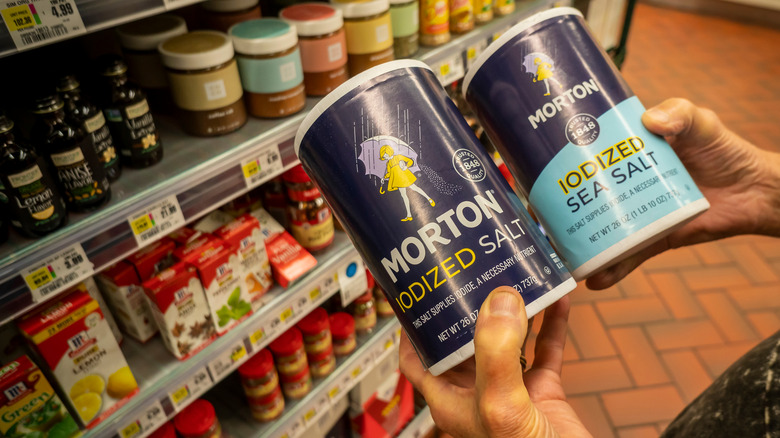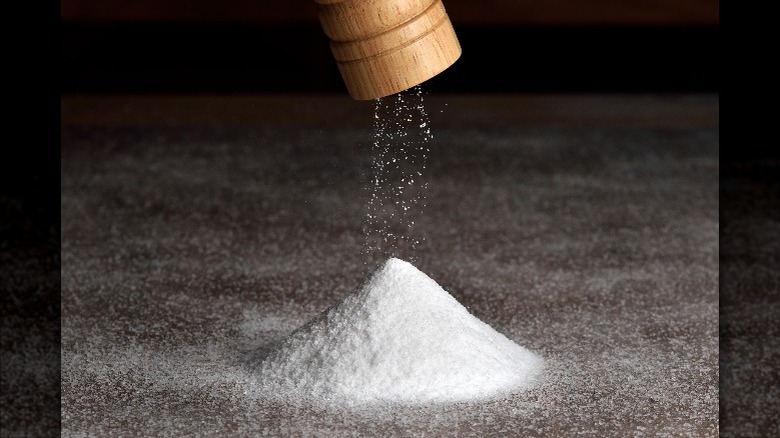Morton Salt Just Issued A Huge Recall
News of a massive recall seems liable to prompt frantic friskings of the pantry. After all, such recalls can be to some disease or potentially dangerous object slipping into the product. In the case of Morton Salt, there is no need for panic.
As Eat This, Not That! reports, the recall applies to almost 17,000 26-ounce salt containers. This is not because the product is contaminated, but because it is mislabelled. The labels claim that the salt is iodized, but it is not. The salt containers in question were distributed throughout Colorado and California. They are best by 9/8/2026.
This is not the only mislabelling issue plaguing Morton. According to ClassAction.org, a proposed class action was filed in September with the complaint that what Morton claims is Himalayan Pink Salt is actually mined in Pakistan, which is a difference of hundreds of miles and would also translate into a drop in iron-rich salt. .
What is iodized salt anyway?
The explanation that a recall has occurred because the salt is not iodized might cause some to blankly stare and respond with "Ok." Iodized sounds important, but why is it? True Food Fact describes iodized salt as table salt that has been mixed with iodine in the form of iodide or iodate. These are compounds that prevent iodine deficiency.
HuffPost goes further in explaining why we mix our salt this way. The human body needs iodine to regulate its metabolism. But we have to ingest it because our bodies don't produce iodine. This wasn't a worry for people who consumed seafood or food grown from soil that was once under the ocean will supply you with iodine. But many who lived too far inland suffered from goiters, which are thyroids that became enlarged in order to absorb more iodine. So, iodized salt was served to prevent this. While these days it seems unlikely that lacking Morton's salt would necessarily result in a goiter, it may still be for the best that the recall has occurred.

